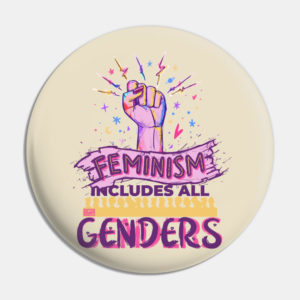What is gender to you? How do you know if you feel like a man, woman, or neither? And how can you talk meaningfully and respectfully about gender? These are questions that were raised in the online dialogue “Me, you and gender identity” marking International Women’s Day.
They, not he or she
The evening started with an inspiration from Zoë. Zoë explained that they don’t identify as either male or female, so they come under the non-binary label. This means that they are addressed with gender-neutral pronouns (them/their, those/theirs). They talked candidly about feeling good in their own body and being in transition. Zoë made it clear that it takes guts to express your gender identity and not care about your surroundings. The tone of the evening was set in the most positive sense of the word. After this inspiring opening, the group was divided into break-out rooms.
Finding the words
In a dialogue you speak from experience. But how can you speak about a subject if you aren’t familiar with the language to use? How do you find the words that fit into a maze of labels, feelings and beliefs? I was quite nervous. What if I offend someone?

Just a boy
A middle-aged woman took the lead. She explained that she used to feel like a little boy. She loved to romp in the woods and wore boy’s clothes (read: comfortable clothes that got really dirty). She found this uncomfortable for a long time but eventually became a woman and feminist. She also said that being young cannot be easy in this day and age, with all the “choices” in gender identities. It’s about daring and being able to be who you are, and coming out for this.
Man and woman
The only boy in the breakout room didn’t understand this. He said that he was a Muslim and that there are two genders according to his faith: man and woman. That’s how God created us. Nor did he know anyone who identifies with neither. This does not alter the fact that he respects everyone as a person and that everyone should be able to be themselves.
Can you feel what someone else feels?
I doubt whether I will ever be able to fully understand what someone experiences who does not feel like a man or woman, because I have never experienced that myself. A cultural anthropology student reacted and made a distinction between understanding and empathizing. She said you can never feel what someone else is feeling, and you don’t need to for understanding.
Labels: let go or hold on to them?
We were all searching and were not immediately on the same page. What we did agree on is the ideal situation. In a perfect world, everyone feels accepted. But how do we achieve that? We disagreed again. One thought that we come to acceptance by letting go of all labels. This way no one can be pigeonholed and everyone can be themselves. The other thought that we need labels to talk to each other and thus achieve inclusion. Conversation is the only way to understand each other.
Speaking up takes guts
And me? I do not know. I am still nervous as I write this piece that I will offend someone. Remember when Zoe talked about the guts you need to express yourself? I think I could use some of that myself.
Emma Linkwitz, March 2021
